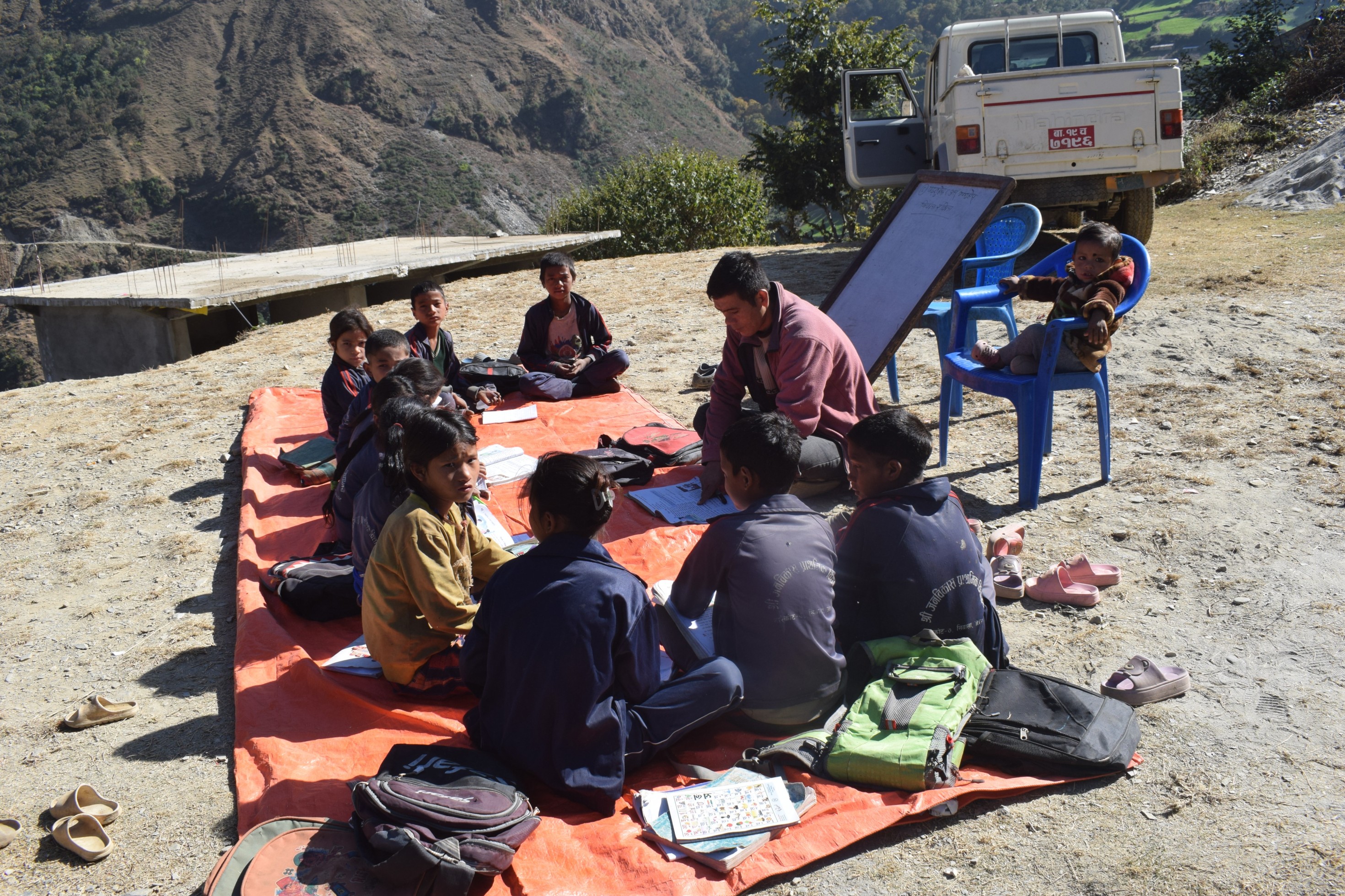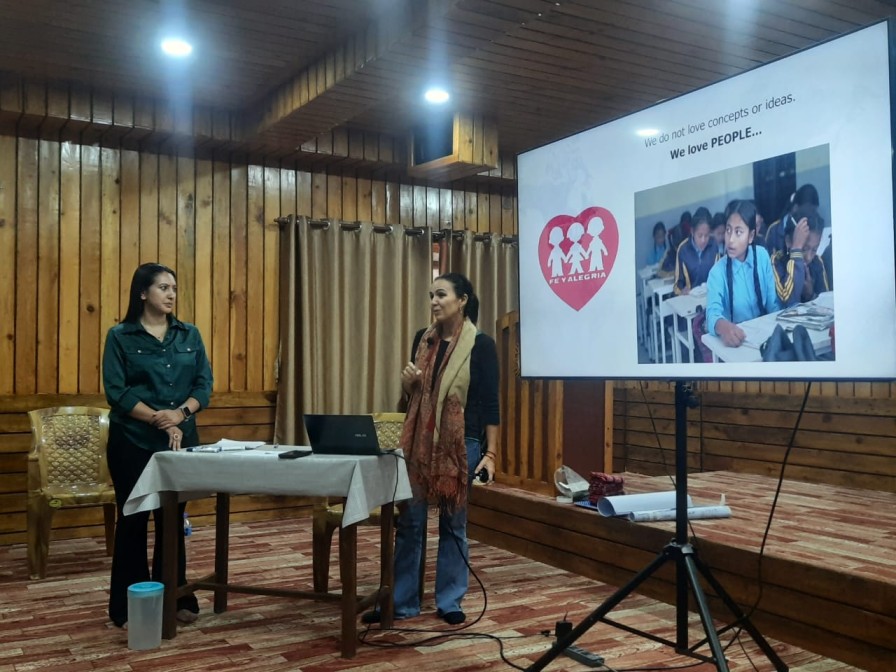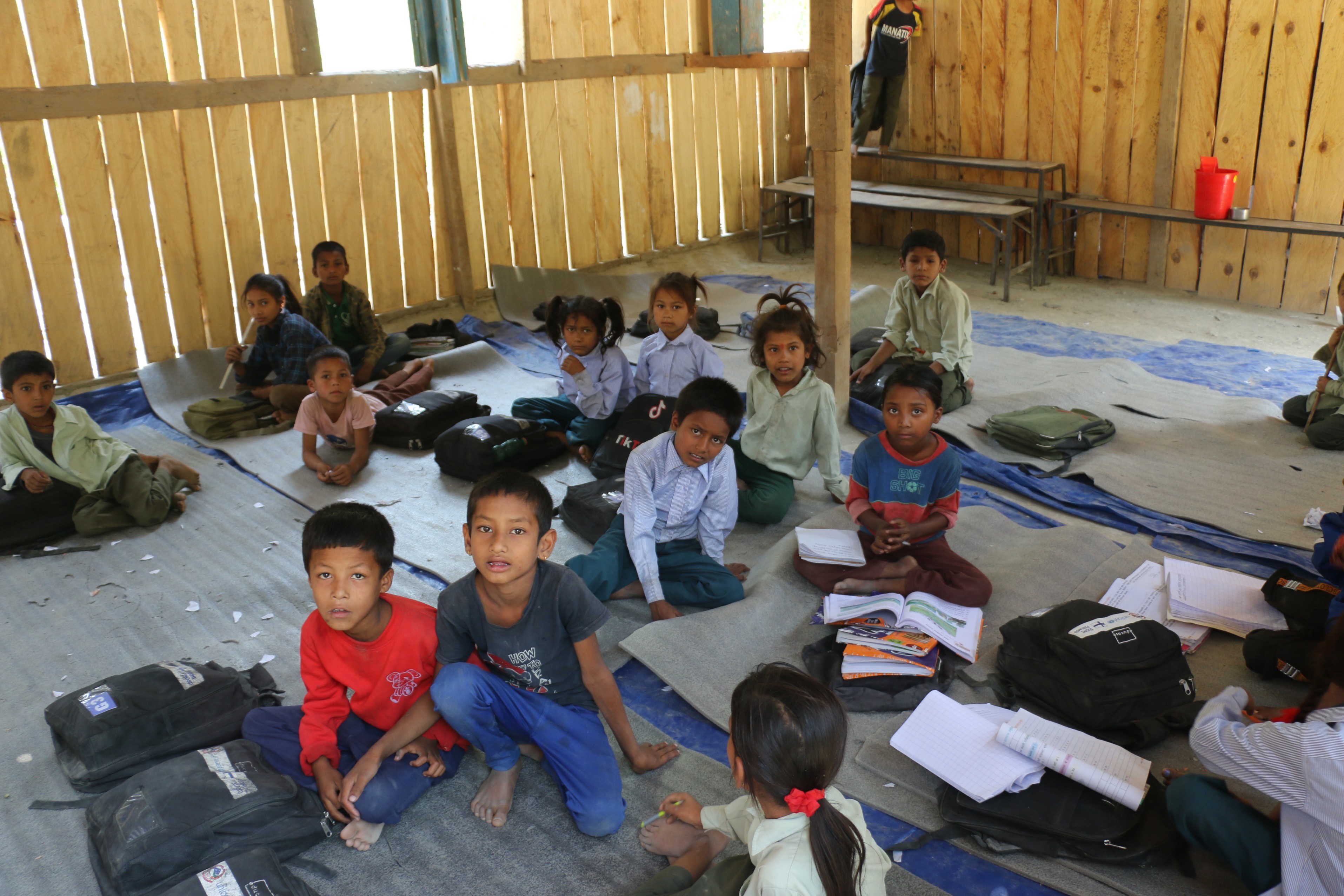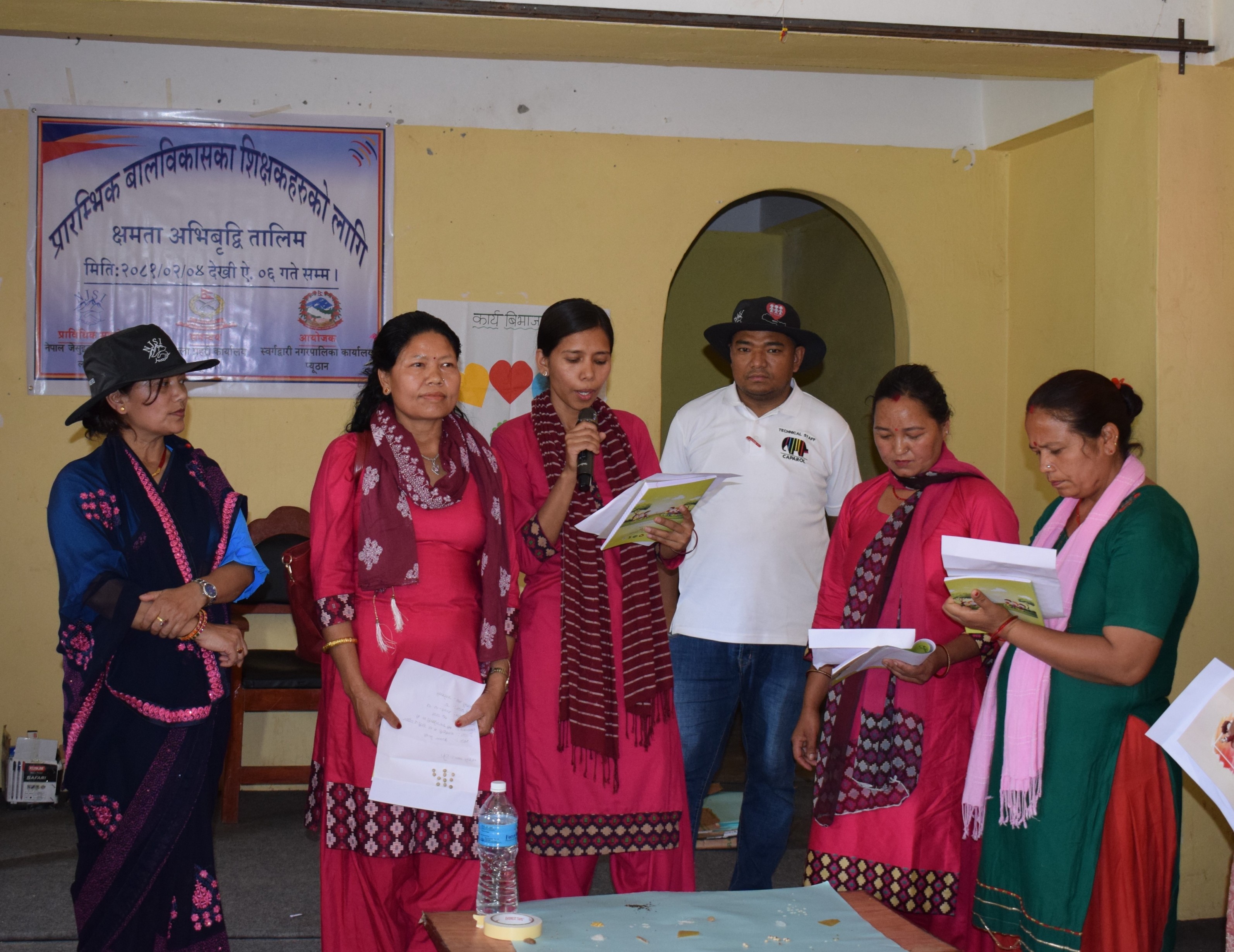NJSI organized a two-day workshop for principals and vice-principals on 3rd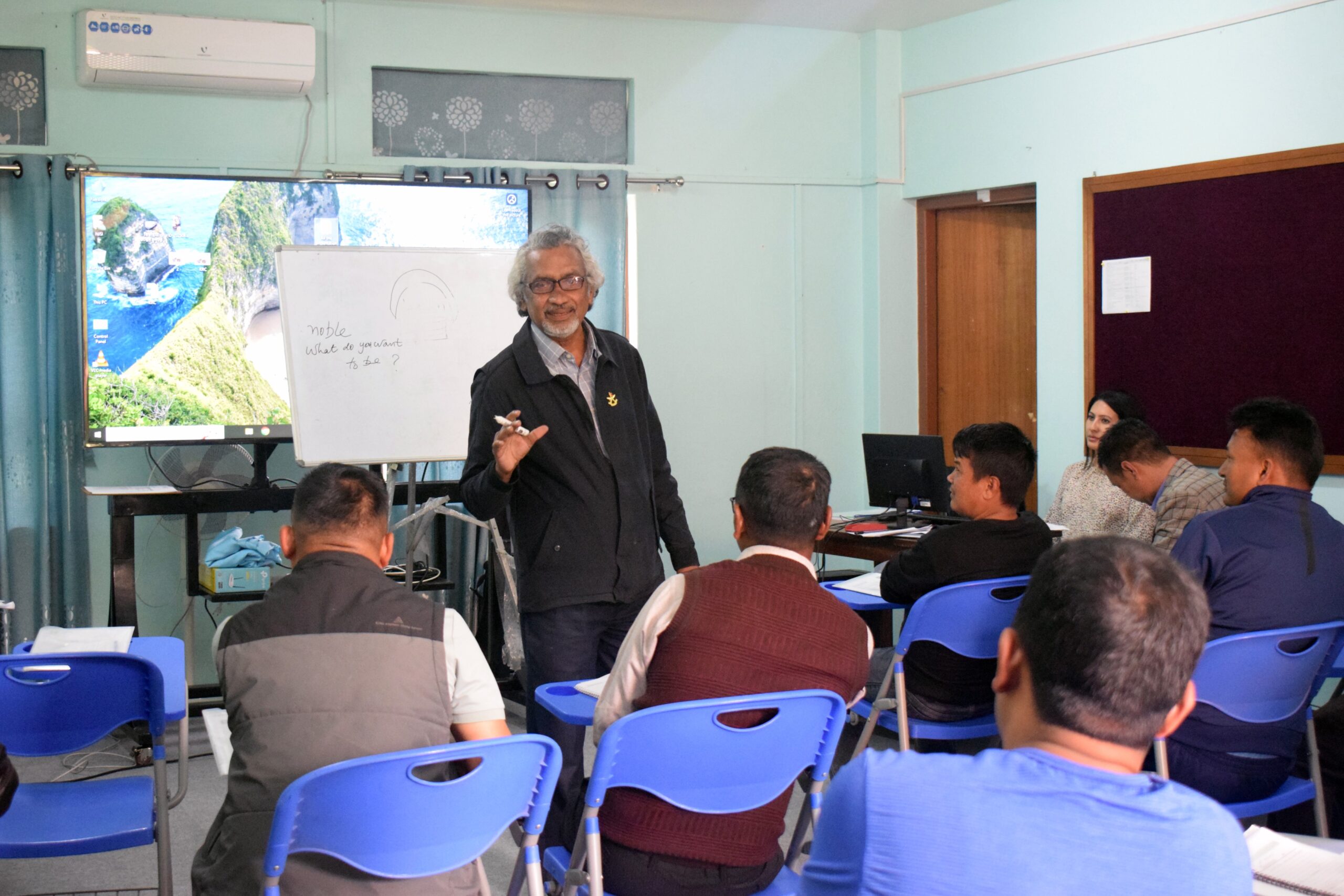 and 4th April at the Kavre Regional Center (KRC). A total of 15 principals and vice principals from 8 different schools took part in the workshop. The main goal of this event was to bring together school leaders under one roof to strengthen trust and collaboration around the Fe y Alegría Nepal program. We’ve carefully chosen 8 schools for this initiative based on factors like proximity, large student populations, strong coordination, solid relationships with staff, a focus on secondary education, and previous involvement with the REIN project. These schools are Shree Batchhala Secondary School, Shree Dongden Devi School at Dhadhing, Shree Bhagawati Secondary School, Shree Grammunnati Secondary School at Kavre, Shree Secondary School at Ramechhapp, Shree Himalayan School at Gorkha, Shree Kali Devi Secondary School at Sindhupalchowk and Shree Bhumesthan Secondary School at Dolakha.
and 4th April at the Kavre Regional Center (KRC). A total of 15 principals and vice principals from 8 different schools took part in the workshop. The main goal of this event was to bring together school leaders under one roof to strengthen trust and collaboration around the Fe y Alegría Nepal program. We’ve carefully chosen 8 schools for this initiative based on factors like proximity, large student populations, strong coordination, solid relationships with staff, a focus on secondary education, and previous involvement with the REIN project. These schools are Shree Batchhala Secondary School, Shree Dongden Devi School at Dhadhing, Shree Bhagawati Secondary School, Shree Grammunnati Secondary School at Kavre, Shree Secondary School at Ramechhapp, Shree Himalayan School at Gorkha, Shree Kali Devi Secondary School at Sindhupalchowk and Shree Bhumesthan Secondary School at Dolakha.
In an early stage of planning for improving the quality of education in the rural schools, we staffs were scattered in 8 different locations to collect the in-depth data from these schools. We collected information from a various stakeholder, including school principals, teachers, students, members of the School Management Committee (SMC), Parents Teachers Association (PTA) members, parents, ward chairpersons, and Education Officers from the Rural Municipality. We had a sort of Questioner for each individual. We used the method of one-to-one interview, group discussions, observations and secondary data analysis. 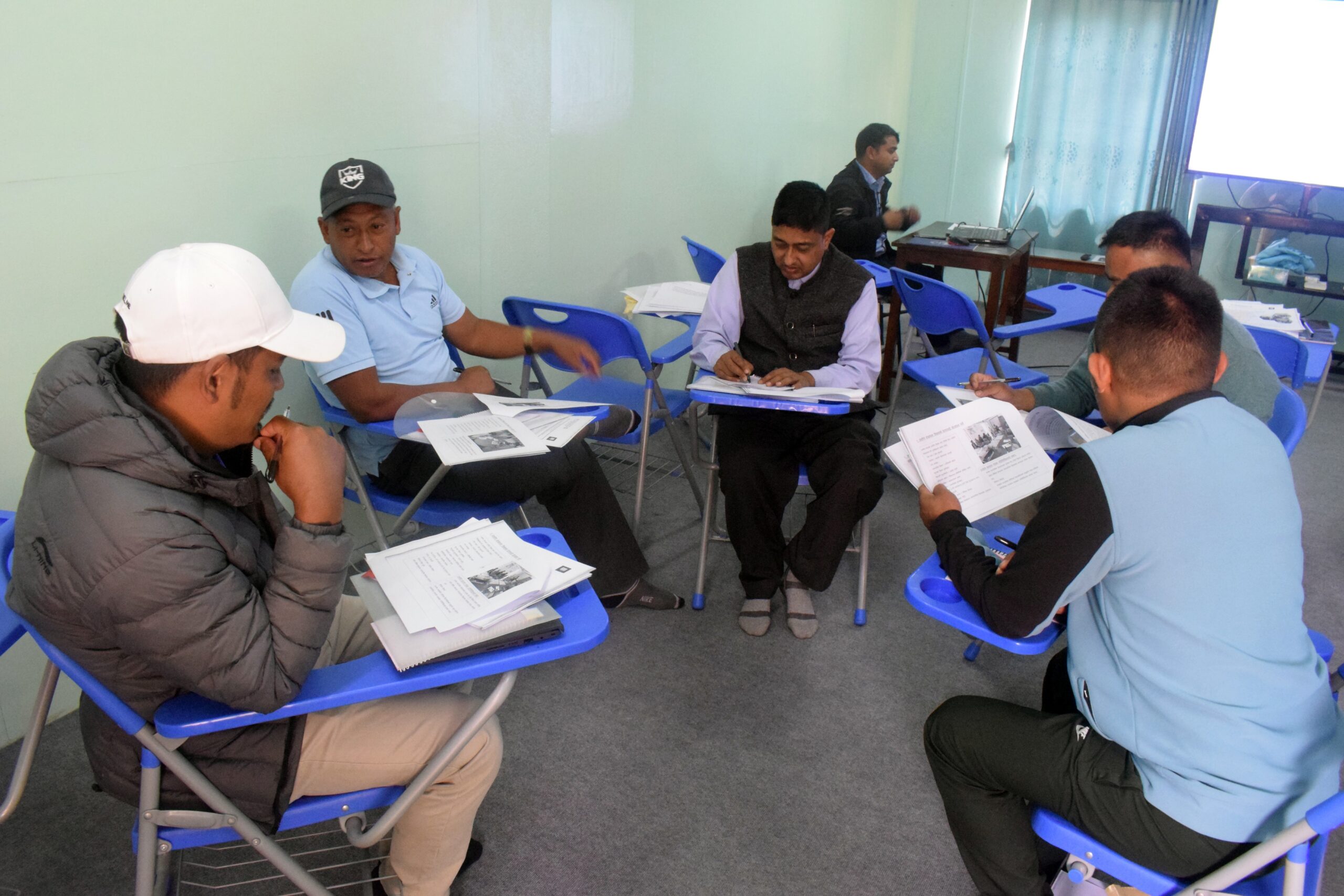
Basically, our activities are divided into 3 main categories, Formal Education, Non-formal Education and Inclusive Education. As the Jesuits are renowned for the expertise in Formal Education, we will be receiving guidance from the Jesuit community. For the Non-formal Education, Laia an Education Specialist, from Spain is guiding us and last but not the least, for the Inclusive, we are communicating with other INGOs/NGOs to exchange the ideas and strategies. We have met couple of organizations to share the ideas and best practices. Although, NJSI has been working in these three areas since 2015, this new initiative builds on our previous experiences while also integrating expert input to ensure the success of the Fe y Alegría Nepal program. 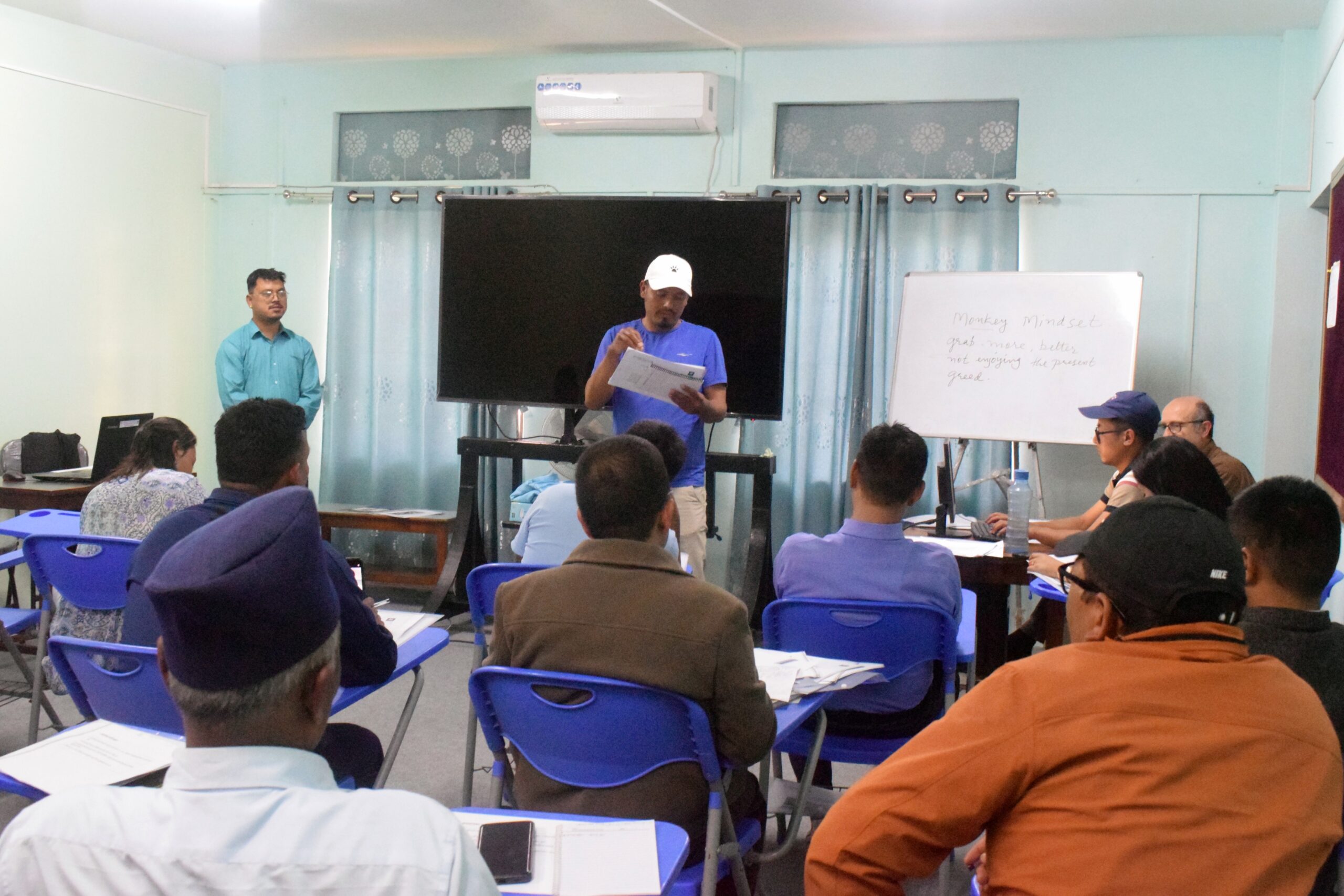
Our two-day workshop with the principals and vice-principals was highly interactive and productive. It is foundational step in launching the Fe y Alegría Nepal program. During the sessions, we presented our background, objectives, planned activities, and methodologies. The participants showed great interest and actively engaged with the  content, raising numerous questions and seeking clarity on various aspects of the program. The NJSI team addressed each of their concerns systematically and thoroughly. In addition to the presentations and interactive discussions, we also facilitated team-building activities, which were well-received and enjoyed by the participants. With valuable insight, NJSI is moving forward with a well-informed, collaborative, and strategic approach. We are confident that with continued engagement and guidance, the Fe y Alegría Nepal initiative will make a meaningful impact in the targeted regions and contribute to long-term educational transformation.
content, raising numerous questions and seeking clarity on various aspects of the program. The NJSI team addressed each of their concerns systematically and thoroughly. In addition to the presentations and interactive discussions, we also facilitated team-building activities, which were well-received and enjoyed by the participants. With valuable insight, NJSI is moving forward with a well-informed, collaborative, and strategic approach. We are confident that with continued engagement and guidance, the Fe y Alegría Nepal initiative will make a meaningful impact in the targeted regions and contribute to long-term educational transformation.
Global Solidarity, Local Action: Reflections from the 40th General Assembly of Fe y Alegría
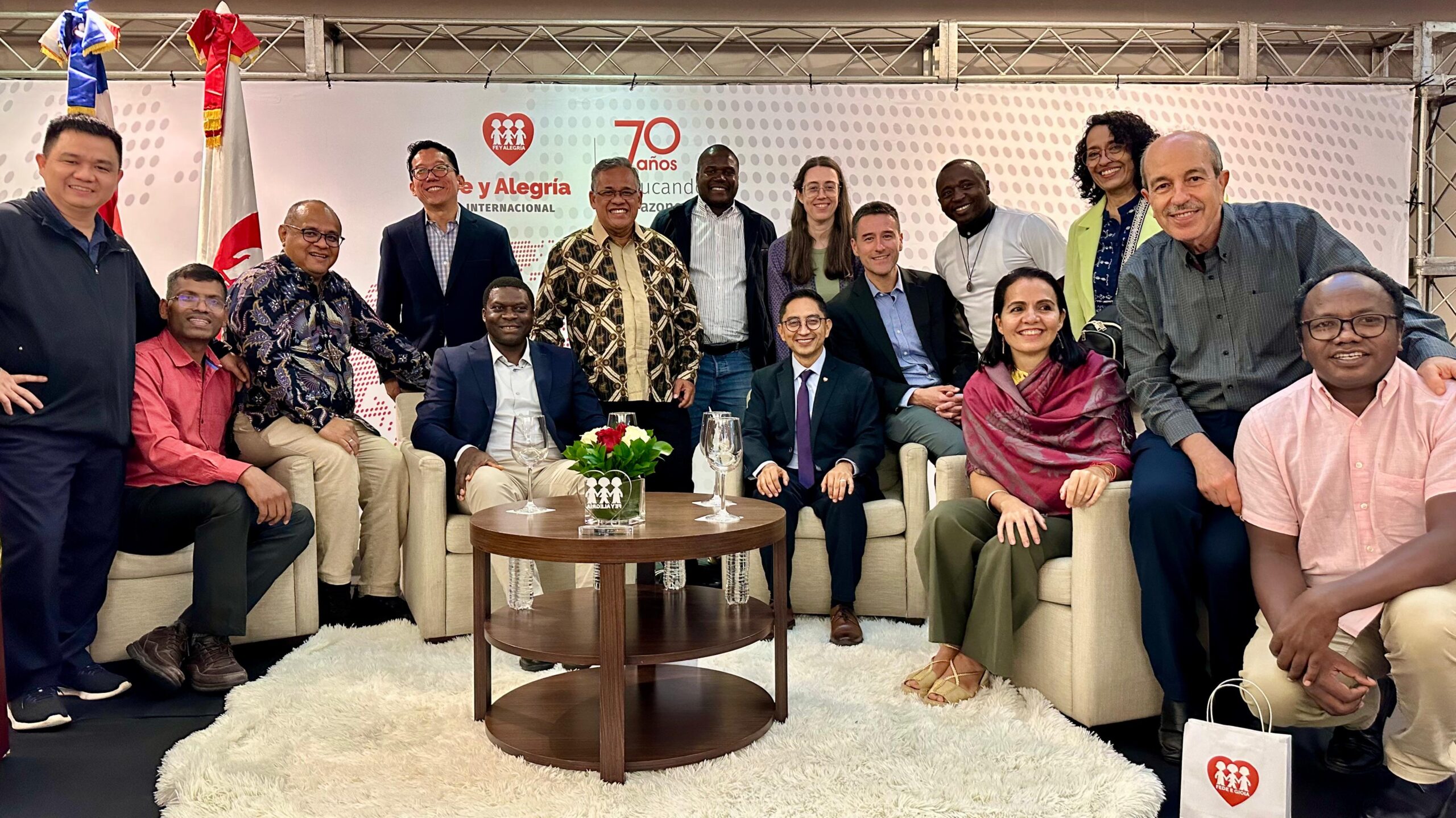
From 16 to 20 March 2025, vibrant change-makers from around the world gathered in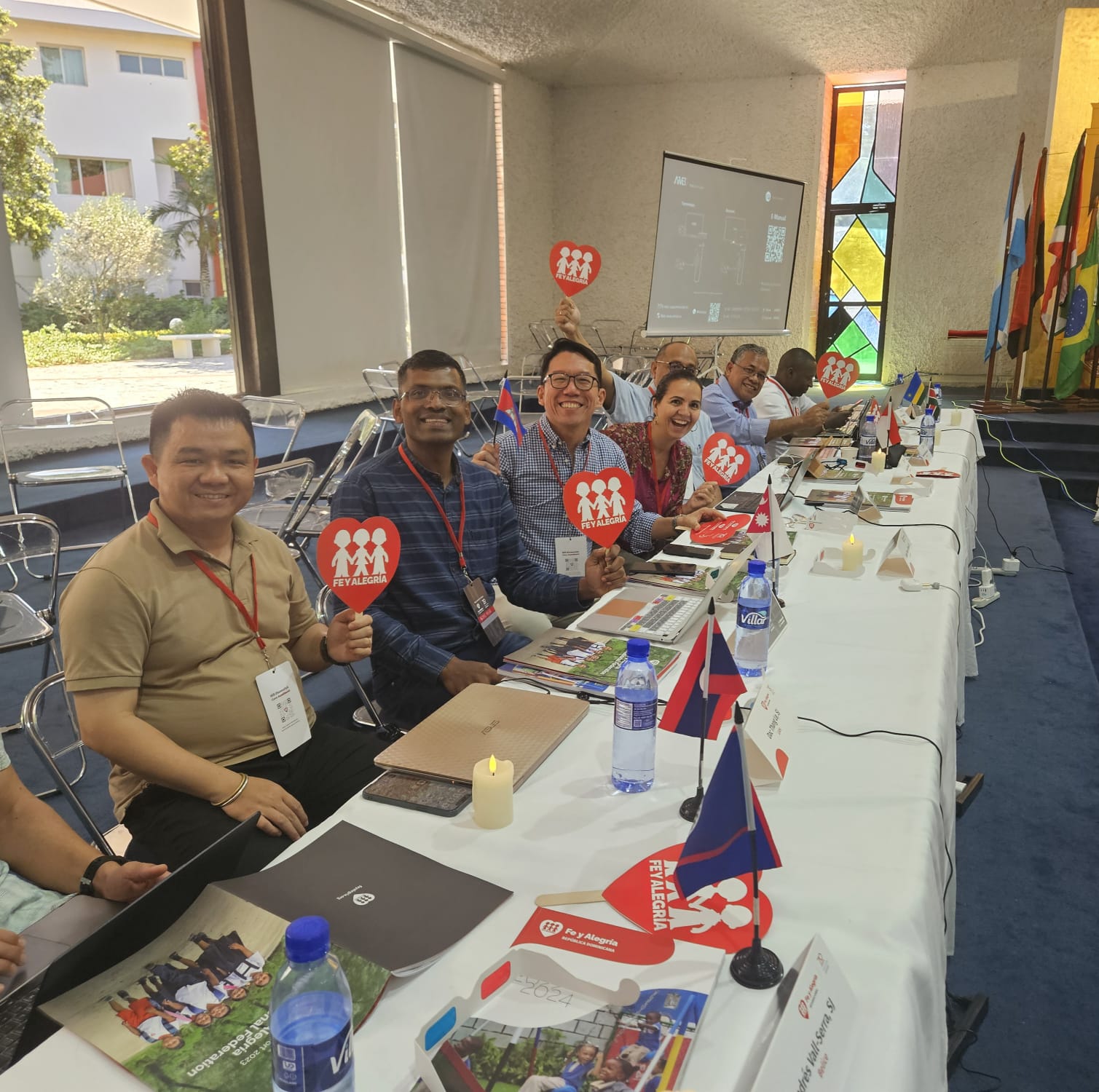 Santo Domingo, Dominican Republic, for the 40th General Assembly of the International Federation of Fe y Alegria. The Assembly was a true reflection of the diversity and cultural richness of the Federation that brought together 103 participants, 89 in person and 14 virtually. Among them, 9 representatives were from the emerging Fe y Alegria countries, including Nepal, represented by Fr. Agustus.
Santo Domingo, Dominican Republic, for the 40th General Assembly of the International Federation of Fe y Alegria. The Assembly was a true reflection of the diversity and cultural richness of the Federation that brought together 103 participants, 89 in person and 14 virtually. Among them, 9 representatives were from the emerging Fe y Alegria countries, including Nepal, represented by Fr. Agustus.
The children and youth of the Fe y Alegria schools of the Dominican Republic beautifully showcased this diversity during the opening ceremony. Their performance was also a poignant reminder of the Federation’s strong grounding in local contexts.
Critical global education issues were discussed in the panel discussions. Human rights, funding and citizen participation were some of the main topics. The conversations emphasized the urgency for a systematic transformation to address these issues.
The workshop on advocacy highlighted the urgency for collective public action. There was a strong call for youth leadership and the participation of the citizens. It also explored how youth could influence government at different levels.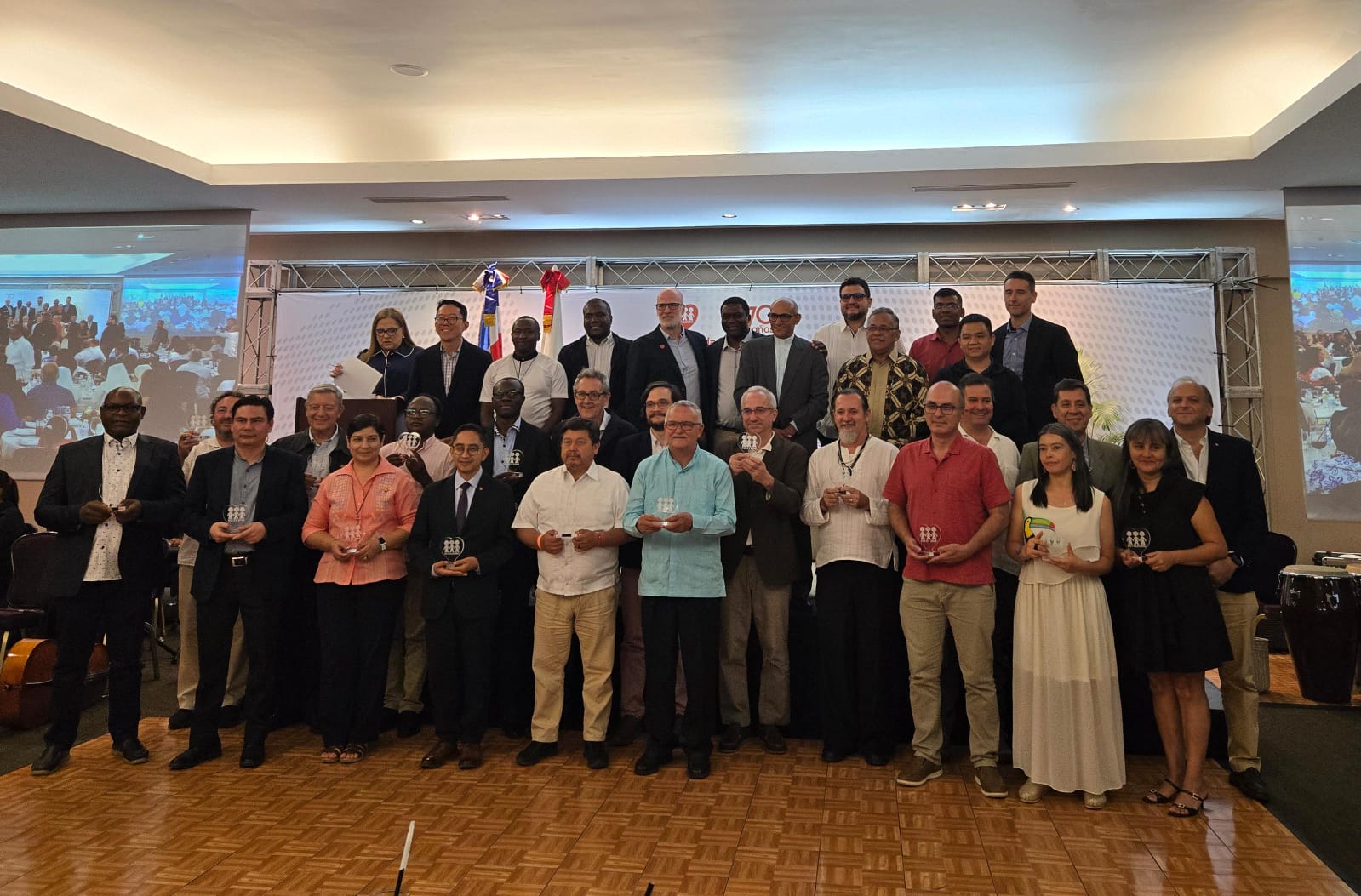
One of the sessions focused on new frontiers. The workshop recognized the need for the movement to reflect on the new frontiers to address new challenges, including inclusive education, early childhood, ecology, youth and migration. All the participants actively engaged in sharing their priorities unique to their local contexts.
Another important highlight of the Assembly was the visit to local Fe y Alegria educational institutions in the Dominican Republic. These visits offered us tangible examples of the impact of the Fe y Alegria movement on communities. Interactions with students and community members revealed the deep connection and mutual trust between schools and local communities, as well as their shared commitment to social development.
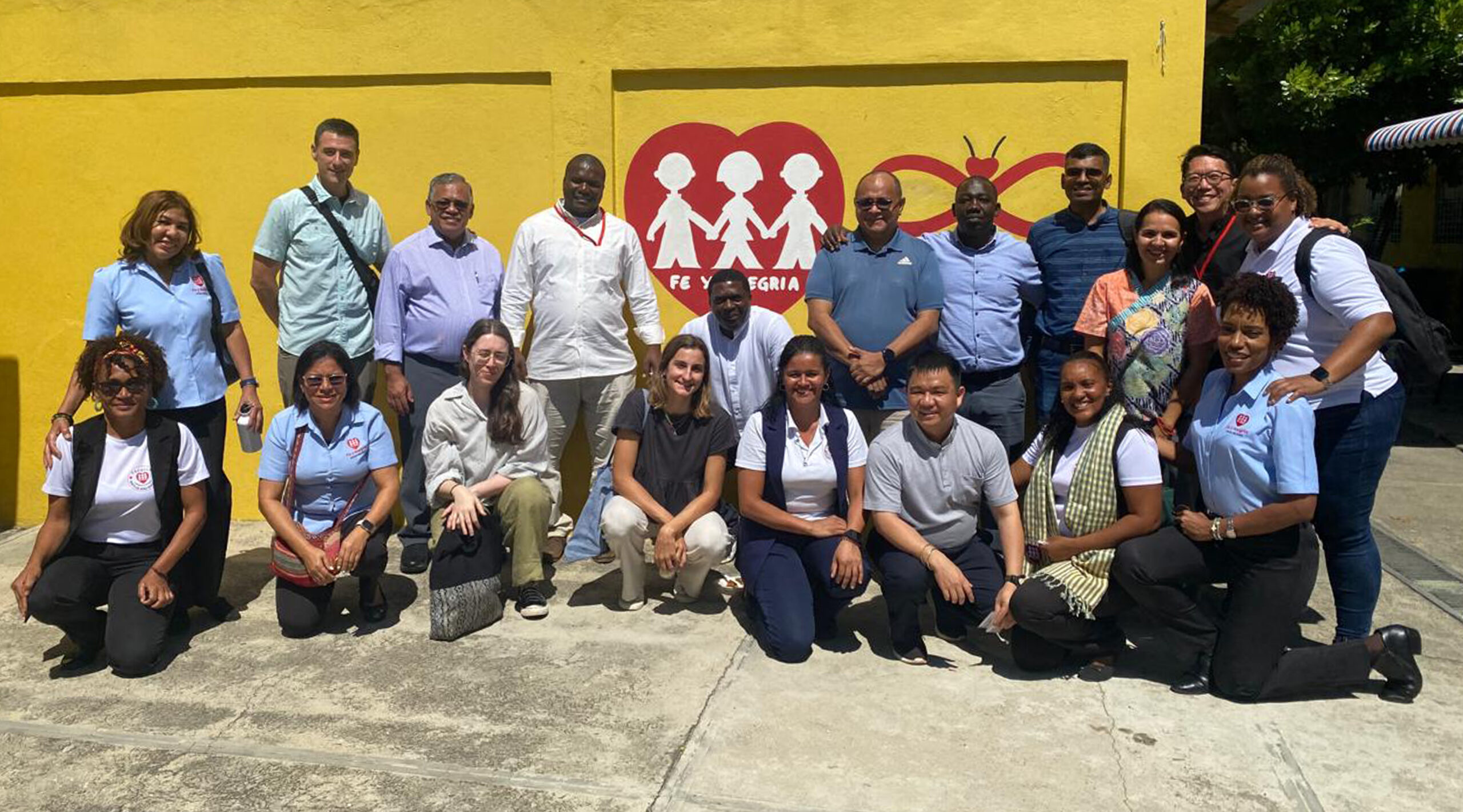 Participating in the Assembly was really an enriching experience. It brought together diverse and rich stories of their commitment for social change from around the world. The events at the Assembly also showed us how education, when deeply rooted in local realities, can become a powerful tool for empowerment and social change. As the founder of Fe y Alegria Movement, Jose Maria Velaz said, “Education is not only a right; it is a means for liberation and transformation.”
Participating in the Assembly was really an enriching experience. It brought together diverse and rich stories of their commitment for social change from around the world. The events at the Assembly also showed us how education, when deeply rooted in local realities, can become a powerful tool for empowerment and social change. As the founder of Fe y Alegria Movement, Jose Maria Velaz said, “Education is not only a right; it is a means for liberation and transformation.”
We have an array of examples of how education has capacity to change lives. As we return to our own countries, we carry with us the spirit and the experiences of the movement. With faith and joy, we journey together in global solidarity through our local actions in rural Nepal, remembering the words of Valez, “Our horizon is the world, but our commitment is to the poorest.”
Furnishing 12 schools with Furniture and REIN at Jajarkot
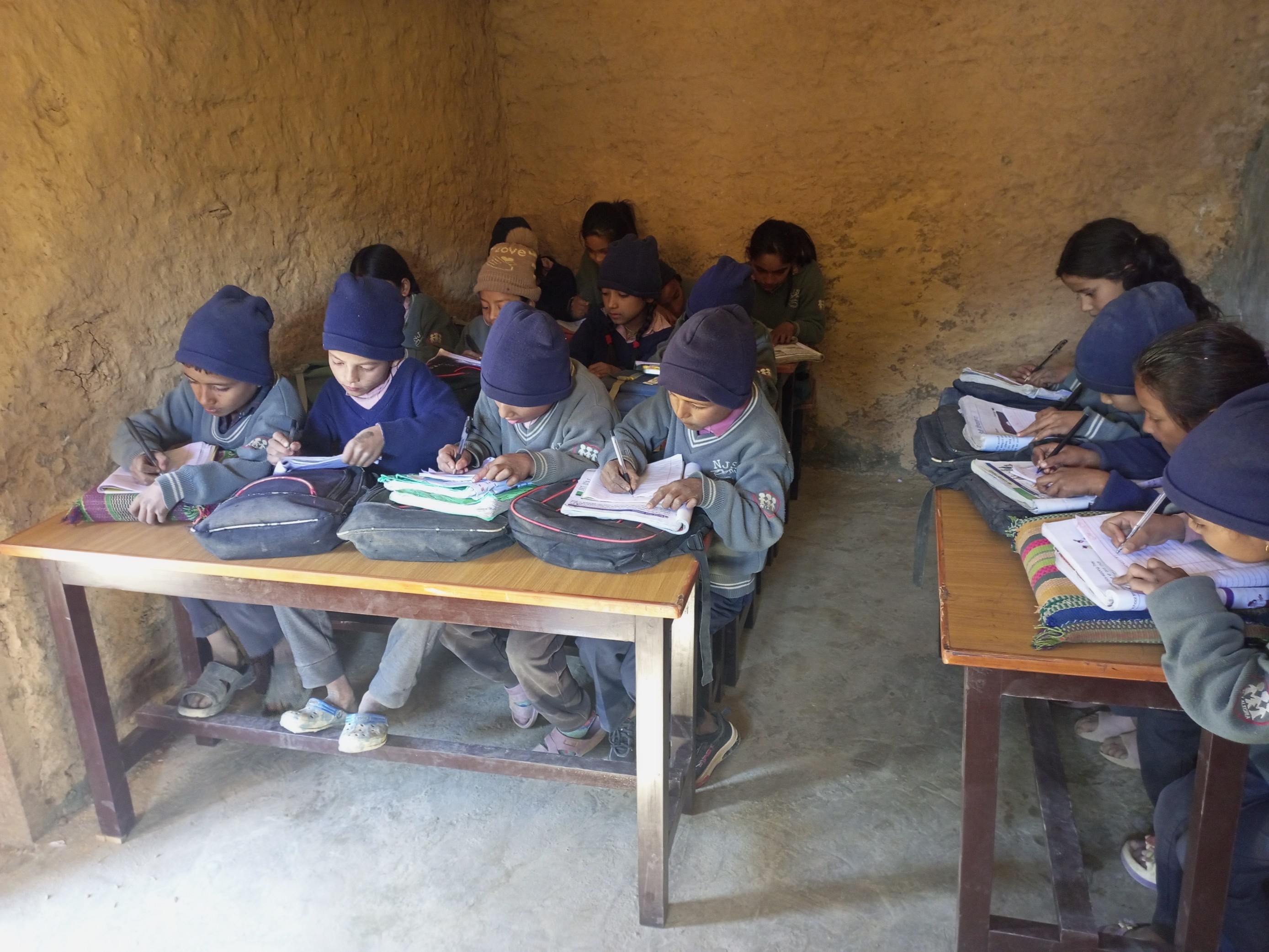
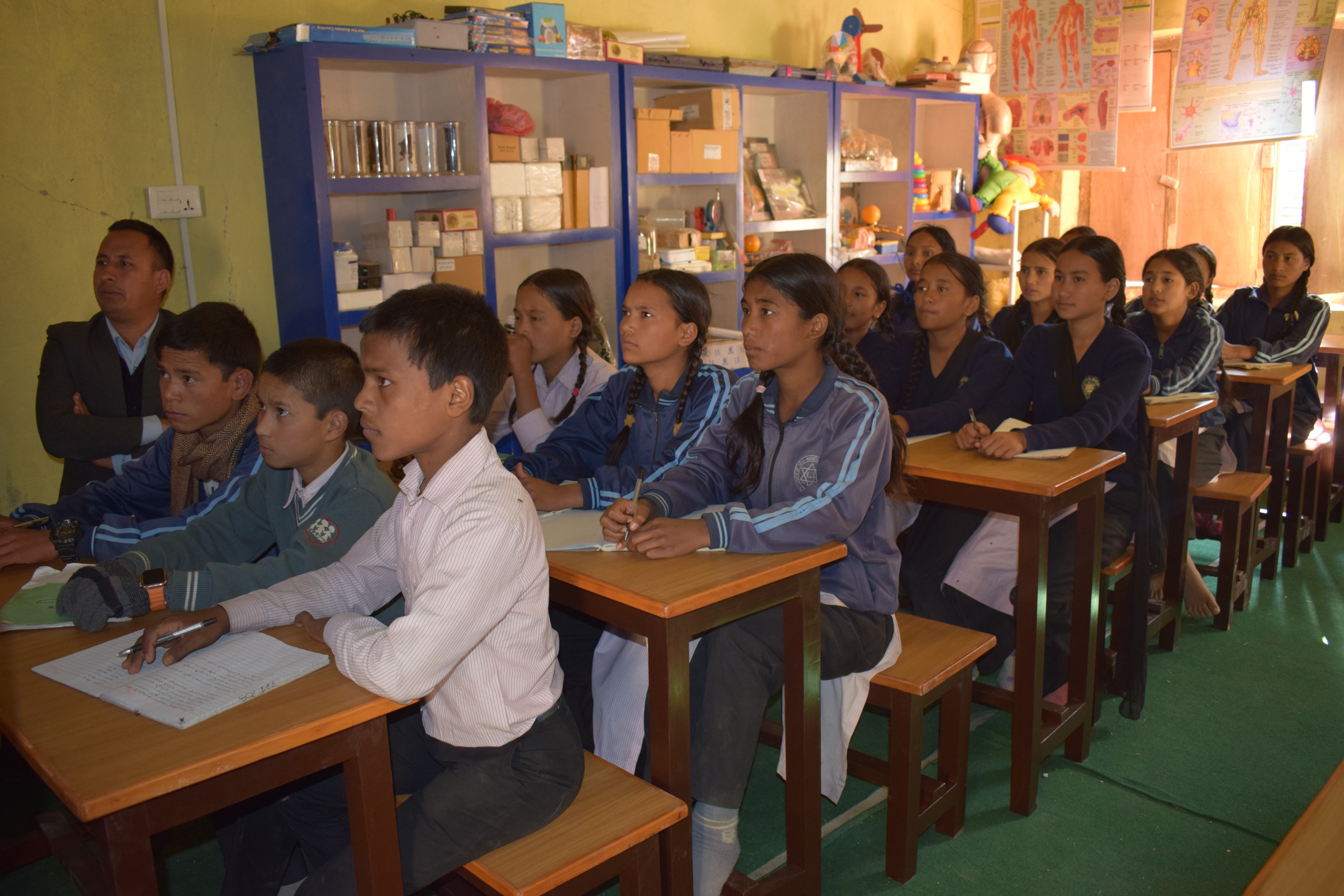
After the earthquake on 3rd Nov, 2023 at Jajarkot, the initiation of Nepal Jesuit Social Institution has made significant improvements in the educational sector at Jajarkot district. Previously, right after the earthquake, in an alarming phase, NJSI had constructed 25 Temporary Learning Center (TLC), distributed furniture and education materials. This time, NJSI team stayed from 17th Nov to 4th Dec at Jajarkot to provided well-furnished furniture and REIN to 12 schools, and benefiting 2,300 students. The schools expressed immense gratitude during the handover ceremony, noting the significant difference the new furniture will made in their educational environment. 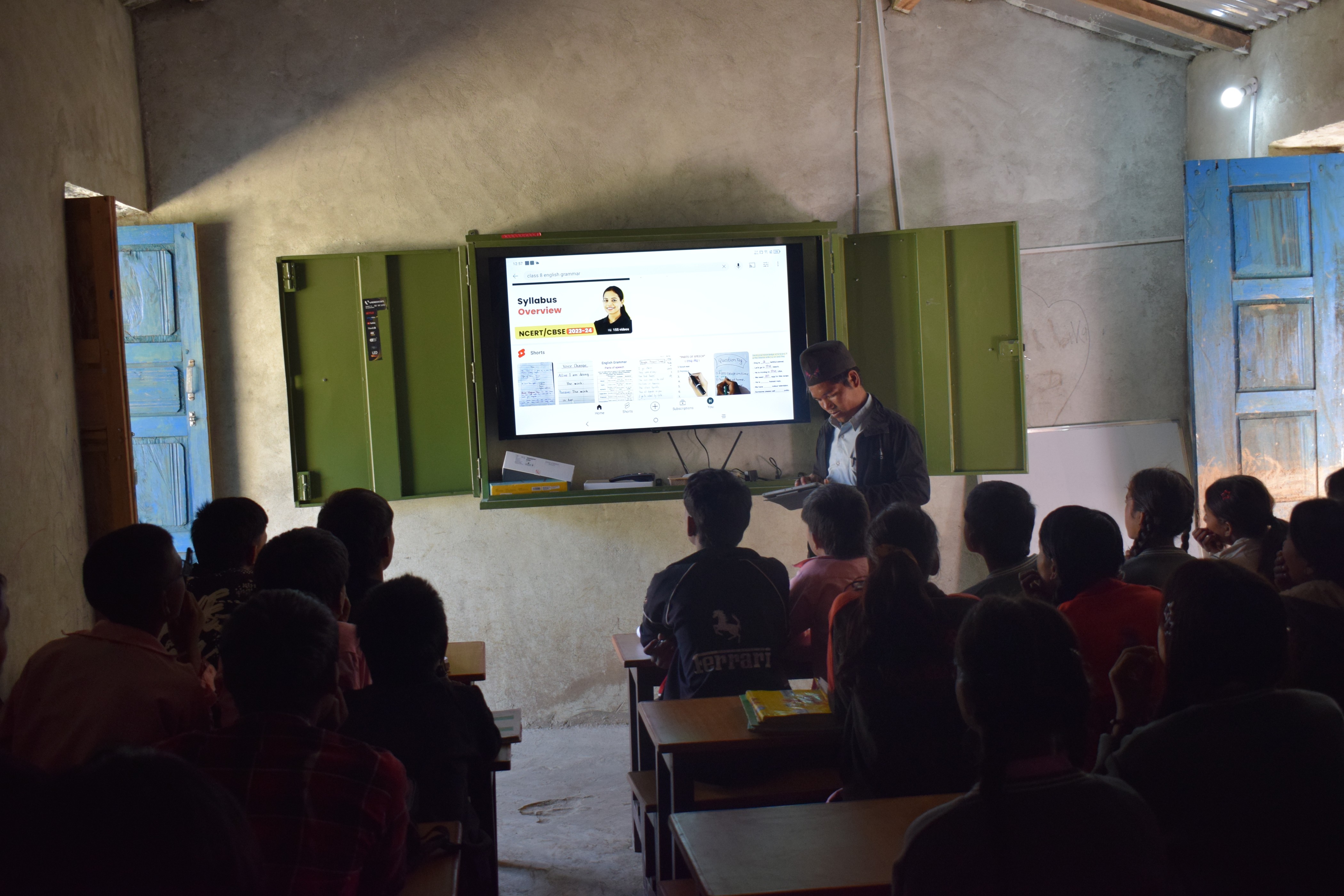
Before, the classrooms in the schools lacked essential furniture, compelling the students to sit on the floor during lessons. This not only created physical discomfort but also hindered their ability to focus and engage effectively in their studies. In other classrooms, the existing furniture were inadequate and uncomfortable. The financial contribution, from Caritas Italiana and General Curia, has been deeply appreciated by the school, students, teachers, community and even from the local Government bodies.
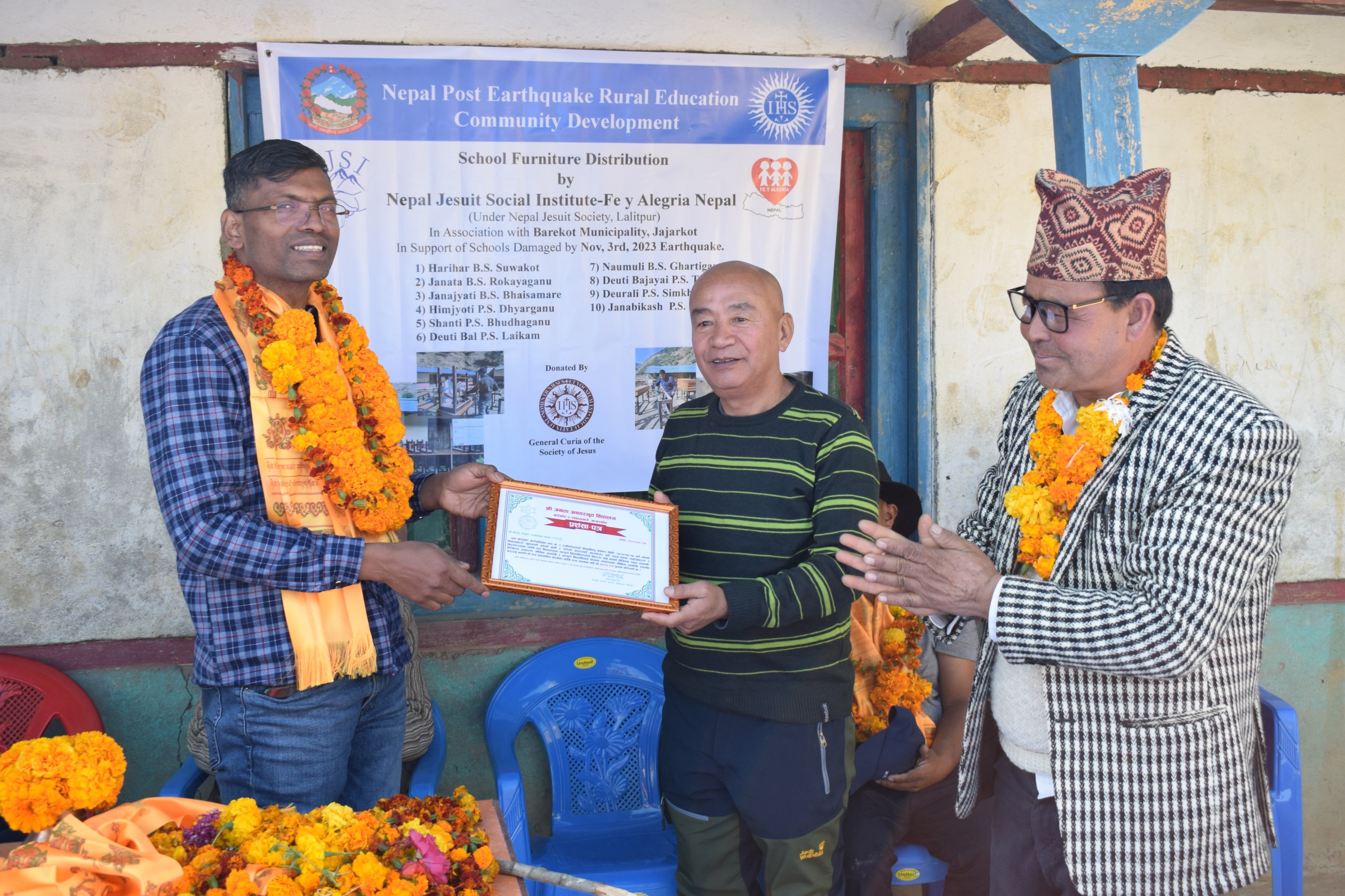 On 2nd Dec, Fr. Amrit Rai, the Superior of NJS, Fr. Agustus, the Executive Director of NJSI, some of the staffs of NJSI, Education Officer, teachers, principals, parents, members of school management committee were present in the handover program.
On 2nd Dec, Fr. Amrit Rai, the Superior of NJS, Fr. Agustus, the Executive Director of NJSI, some of the staffs of NJSI, Education Officer, teachers, principals, parents, members of school management committee were present in the handover program.
In a broader sense, providing the materials to the schools goes beyond simply gratifying the need of the schools rather it represents an improvement in the quality of education.
NJSI: Advancing Towards Creating a Fe y Alegria Model in Rural Nepal
Fe y Algeria (FyA), a Movement for Integral Popular Education and Social Development, was initiated in Nepal in 2021. It was marked by the signing of a Memorandum of Understanding (MOU) between Fr Amrit, the Superior of Nepal Jesuits and Fr. Carlos Frintzen, the former Coordinator General of the International Federation of Fe y Algeria, during the opening ceremony of Kavre Regional Center at Panchkhal, Kavre. Currently, NJSI is advancing towards developing and implementing the FyA program in rural Nepal in the coming years. 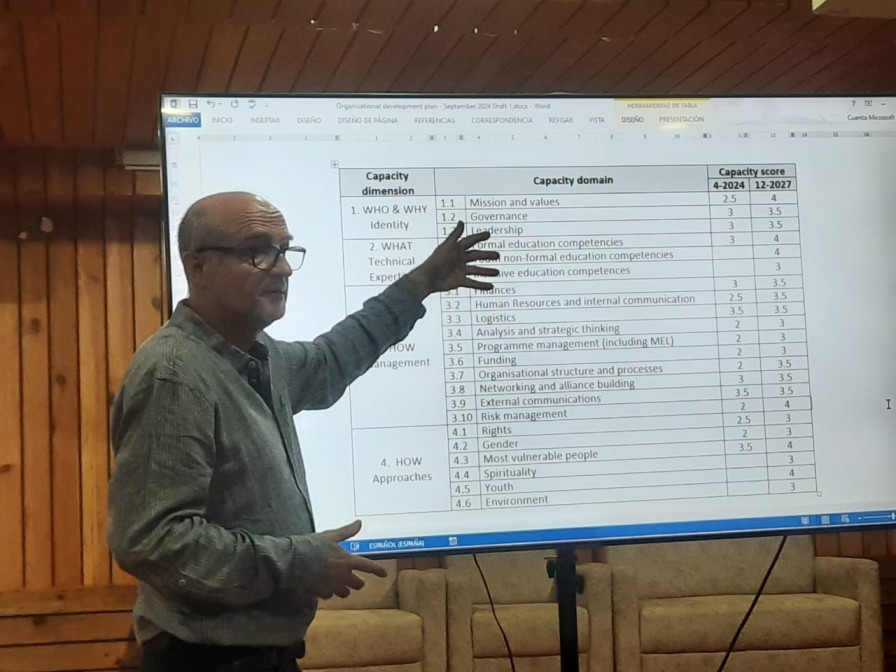
With support from our donor, Xavier Network, and guidance from our consultant team led by Xavier Mir, we are conceptualizing our vision for FyA in Nepal. The team has led several meetings and workshops, exploring various elements for our future FyA program. The NJSI Management Committee and all staff have been actively involved in this process. Ms. Pilar Lopez, Asia Regional Manager at FyA, has been accompanying us throughout the process.
The numerous meetings and workshops have laid a foundation for FyA program, resulting in a Concept Note, a roadmap that we aim to finalized soon. Our future program will focus on the education sector, with a special emphasis on formal, non-formal and inclusive education in selected rural municipalities where we have previously worked.
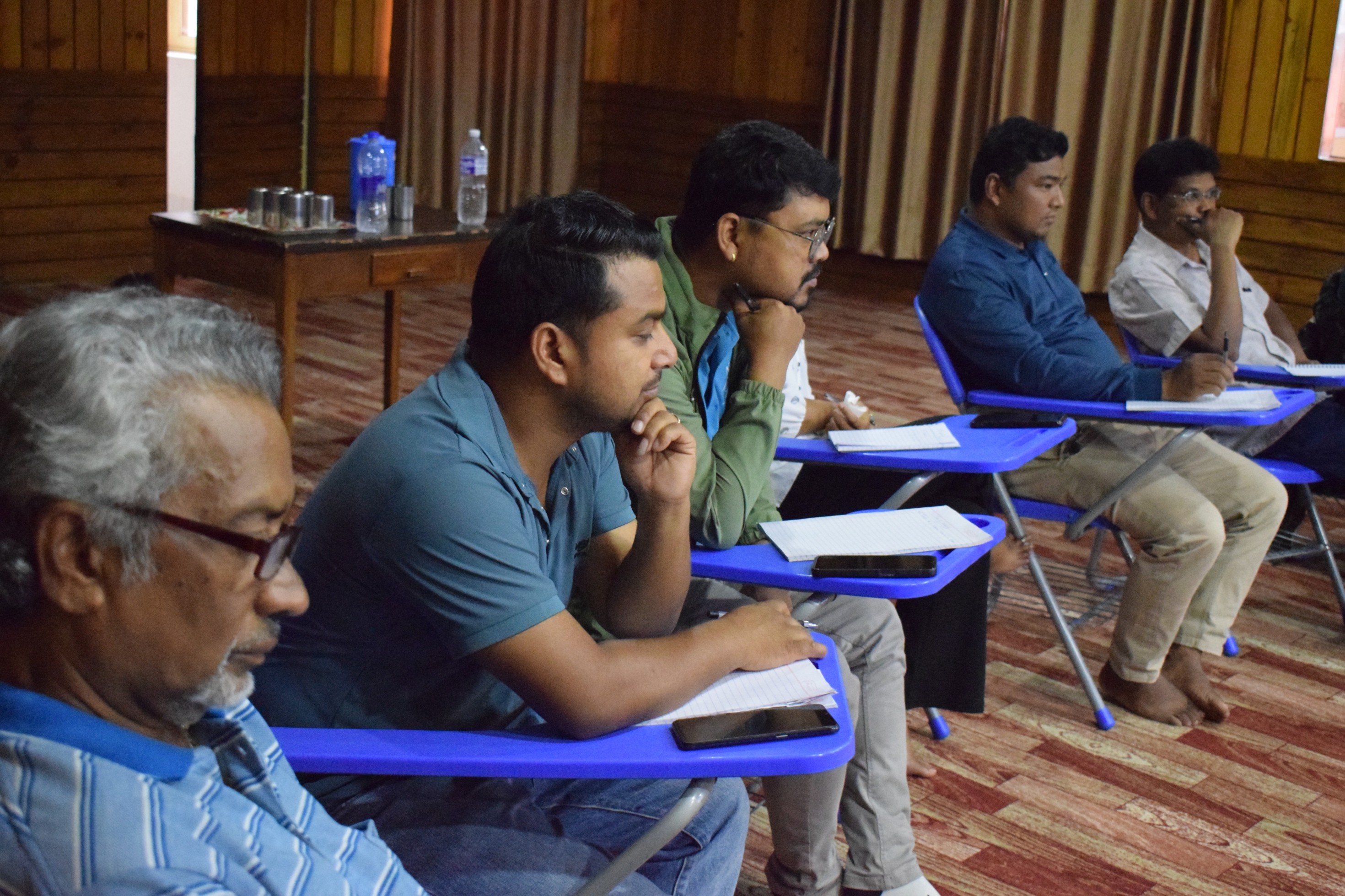 FyA is a global educational movement. Many countries are part of this movement. Each country has developed its own model to uplift vulnerable populations through education. We are in the process of creating a FyA model in Nepal that is contextually relevant and beneficial to the community we serve.
FyA is a global educational movement. Many countries are part of this movement. Each country has developed its own model to uplift vulnerable populations through education. We are in the process of creating a FyA model in Nepal that is contextually relevant and beneficial to the community we serve.
We understand that our vision of creating a new model will not emerge overnight and has a lot of challenges. We may face numerous hurdles, challenges and rejections. It may require change in our strategies and approaches to address the various challenges in the implementation of the program. However, our primary focus remains: to keep working with faith to make this movement a success in Nepal by bringing joy to the community we serve.
NJSI Enhancing the Learning Environment at West Rukum
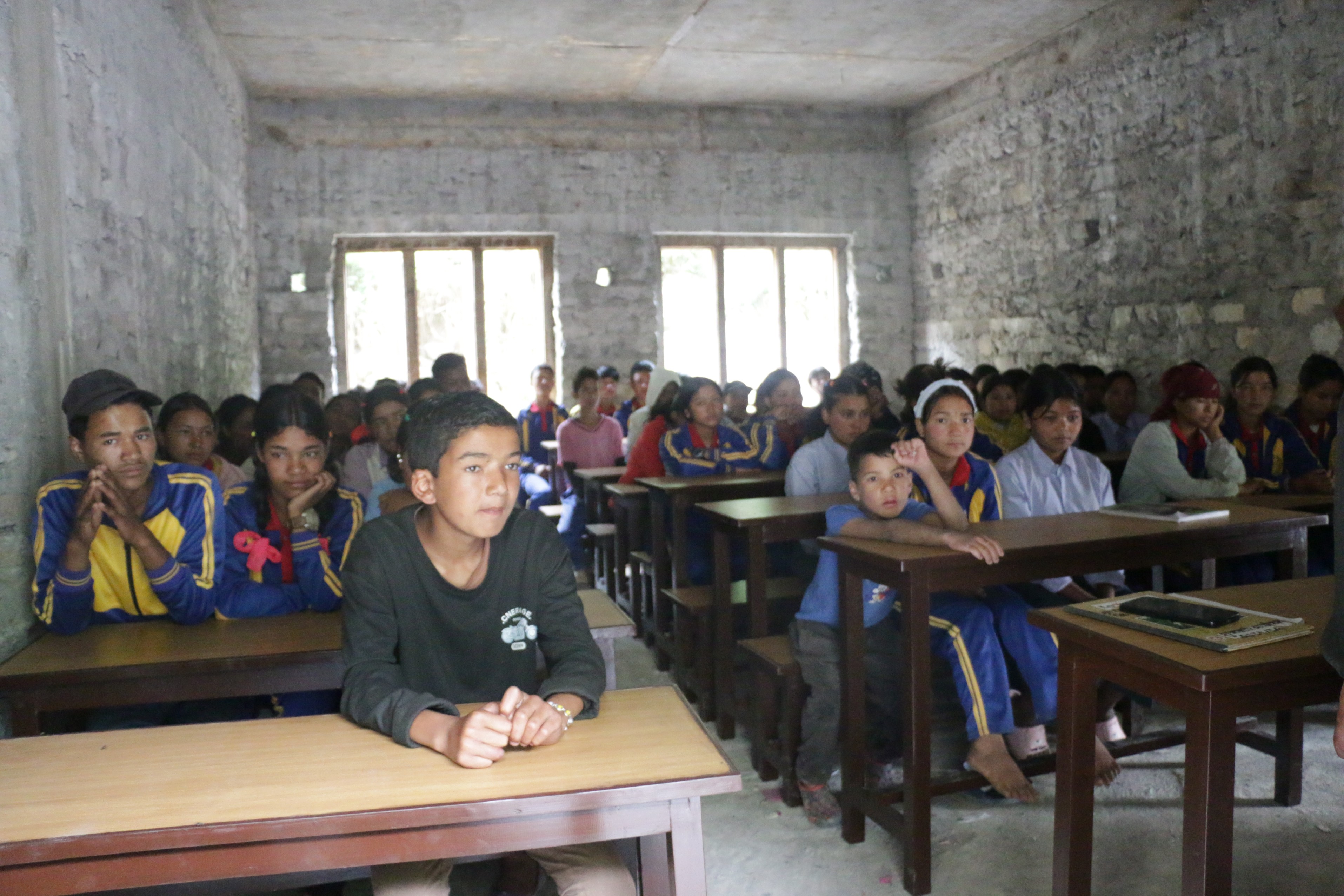 When the Earthquake hit Jajarkot on 3rd Nov, 2023, initially, NJSI helped with Temporary Learning Centers to 19 schools of Barekot Rural Municiplity, Jajarkot than with the follow up programs, NJSI saw the need of educational materials and clothing for the students. Consequently, NJSI distributed educational materials and sweaters prospering 4886 students in total.
When the Earthquake hit Jajarkot on 3rd Nov, 2023, initially, NJSI helped with Temporary Learning Centers to 19 schools of Barekot Rural Municiplity, Jajarkot than with the follow up programs, NJSI saw the need of educational materials and clothing for the students. Consequently, NJSI distributed educational materials and sweaters prospering 4886 students in total.
In Addition to the “Earthquake Relief and Distribution Program”, NJSI fulfilled the urgency of furniture in 21 schools of West Rukum, one of the districts which was affected by the earthquake. Each school were provided with 20 sets of desk and bench. 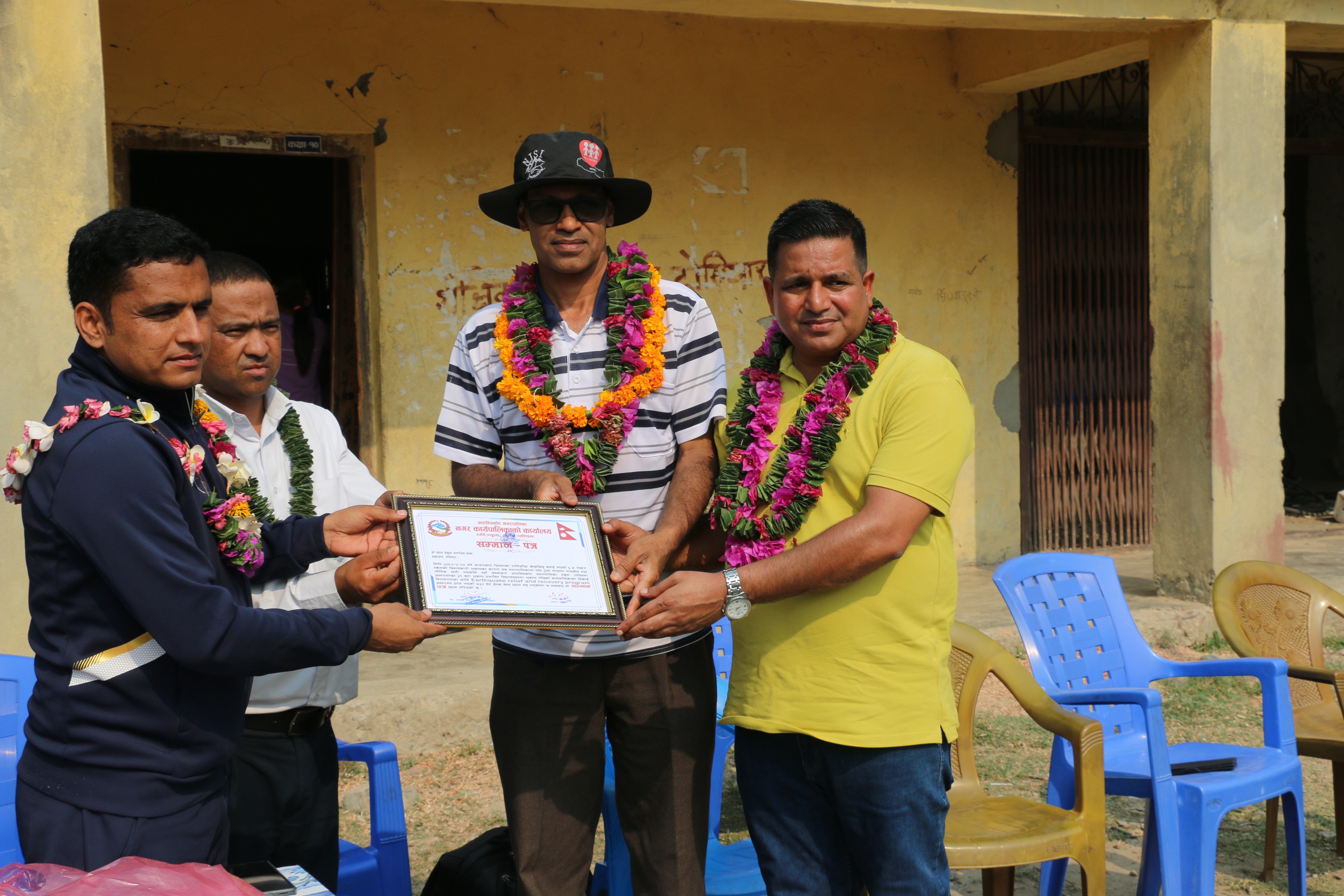 In total, 7482 students got benefited. The NJSI team started the journey from 28th May to 19th June and returned at June. On 18th June, a Handing Over Ceremony was held by Aathbiskot Municpality at Shree Nepal Rastriya Secondary School. The program was conducted in the presence of Mayor Rabi K.C, Section Officer of Education, Youth and Sports, Indra Bahadur Bista, Principal of Jeevanjyoti, Fr. Joman, ward chairperson of School Management Committee, chairperson of wards and rest were the principals, teachers and students of the schools who received the furniture. These all schools were recommended by the local Government. As to testify the recommendations, NJSI witnessed the students were sitting on the floor in the classrooms with no furniture, in some schools, the furniture was in the verge of damage. Though the schools were not well furnished, the no. of students in all 21 schools were quite high, the students were coming regularly. Comparatively to otheir schools the parents have understood the prosperity of sending their children to the schools for their better future.
In total, 7482 students got benefited. The NJSI team started the journey from 28th May to 19th June and returned at June. On 18th June, a Handing Over Ceremony was held by Aathbiskot Municpality at Shree Nepal Rastriya Secondary School. The program was conducted in the presence of Mayor Rabi K.C, Section Officer of Education, Youth and Sports, Indra Bahadur Bista, Principal of Jeevanjyoti, Fr. Joman, ward chairperson of School Management Committee, chairperson of wards and rest were the principals, teachers and students of the schools who received the furniture. These all schools were recommended by the local Government. As to testify the recommendations, NJSI witnessed the students were sitting on the floor in the classrooms with no furniture, in some schools, the furniture was in the verge of damage. Though the schools were not well furnished, the no. of students in all 21 schools were quite high, the students were coming regularly. Comparatively to otheir schools the parents have understood the prosperity of sending their children to the schools for their better future.
Building a Foundations to Early Childhood Educators and REIN Installation in 2 Schools
NJSI conducted 2 ECD Training programs at Pyuthan, one in Shawargadarika Municipality and another in Airawati Rural 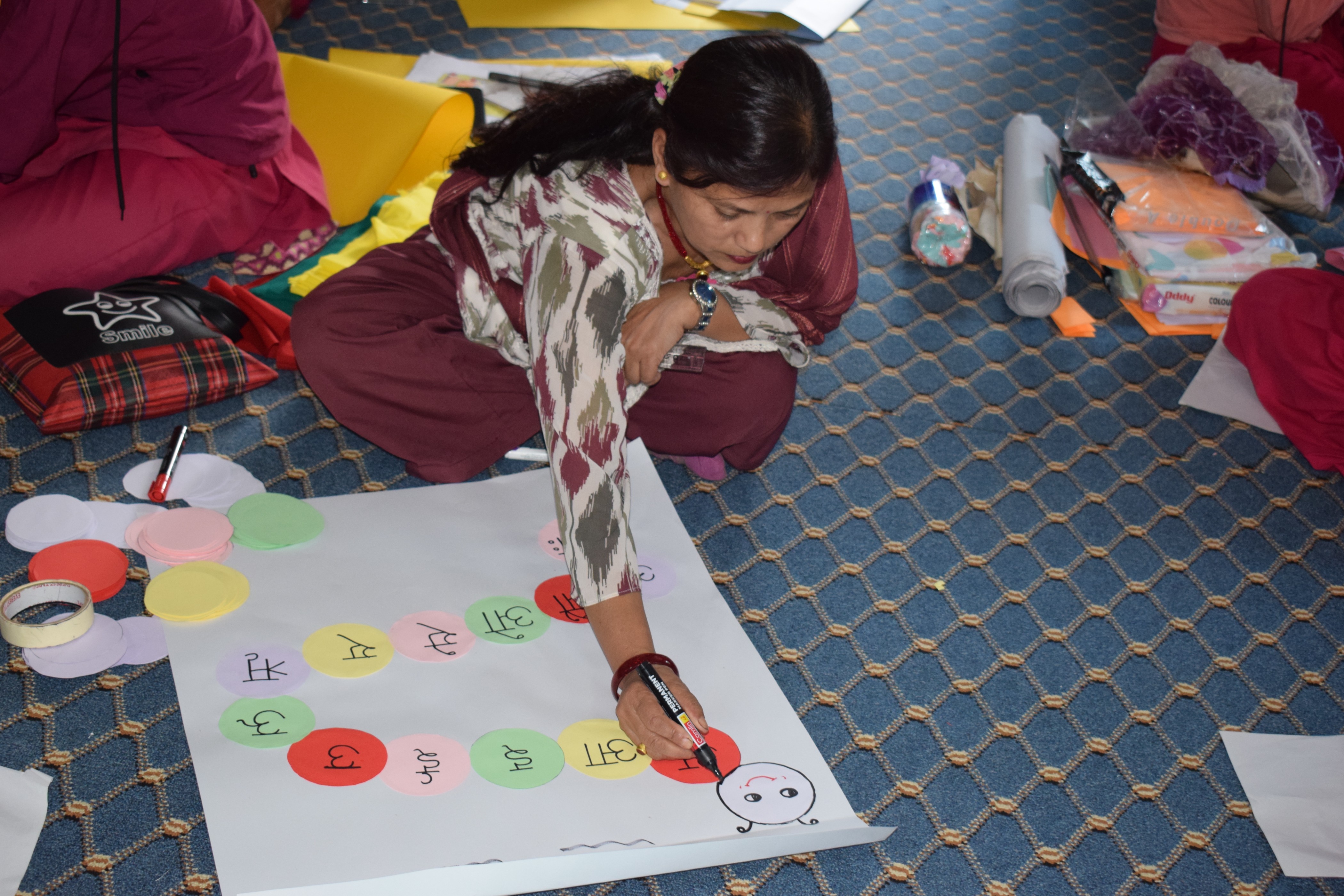 Municipality. The ECD Program was organized for 3 days, from 17th to 19th May at Shawradarika Municipality. In total 42 schools were participated where one teacher from each school were present. The resource person was from “Seto Guras” named Sita Devi Shrestha. And from 20th to 22nd May, another, ECD training program was held at Airawati Rural Municipality where 50 teachers were participated from 50 schools. The notion of providing ECD Training program is to the teachers to gain deeper understanding of the physical, cognitive, social and emotional development of their students. The knowledge would help them to adapt significant teaching methods and activities in order to reach the students need at various stages of development.
Municipality. The ECD Program was organized for 3 days, from 17th to 19th May at Shawradarika Municipality. In total 42 schools were participated where one teacher from each school were present. The resource person was from “Seto Guras” named Sita Devi Shrestha. And from 20th to 22nd May, another, ECD training program was held at Airawati Rural Municipality where 50 teachers were participated from 50 schools. The notion of providing ECD Training program is to the teachers to gain deeper understanding of the physical, cognitive, social and emotional development of their students. The knowledge would help them to adapt significant teaching methods and activities in order to reach the students need at various stages of development.
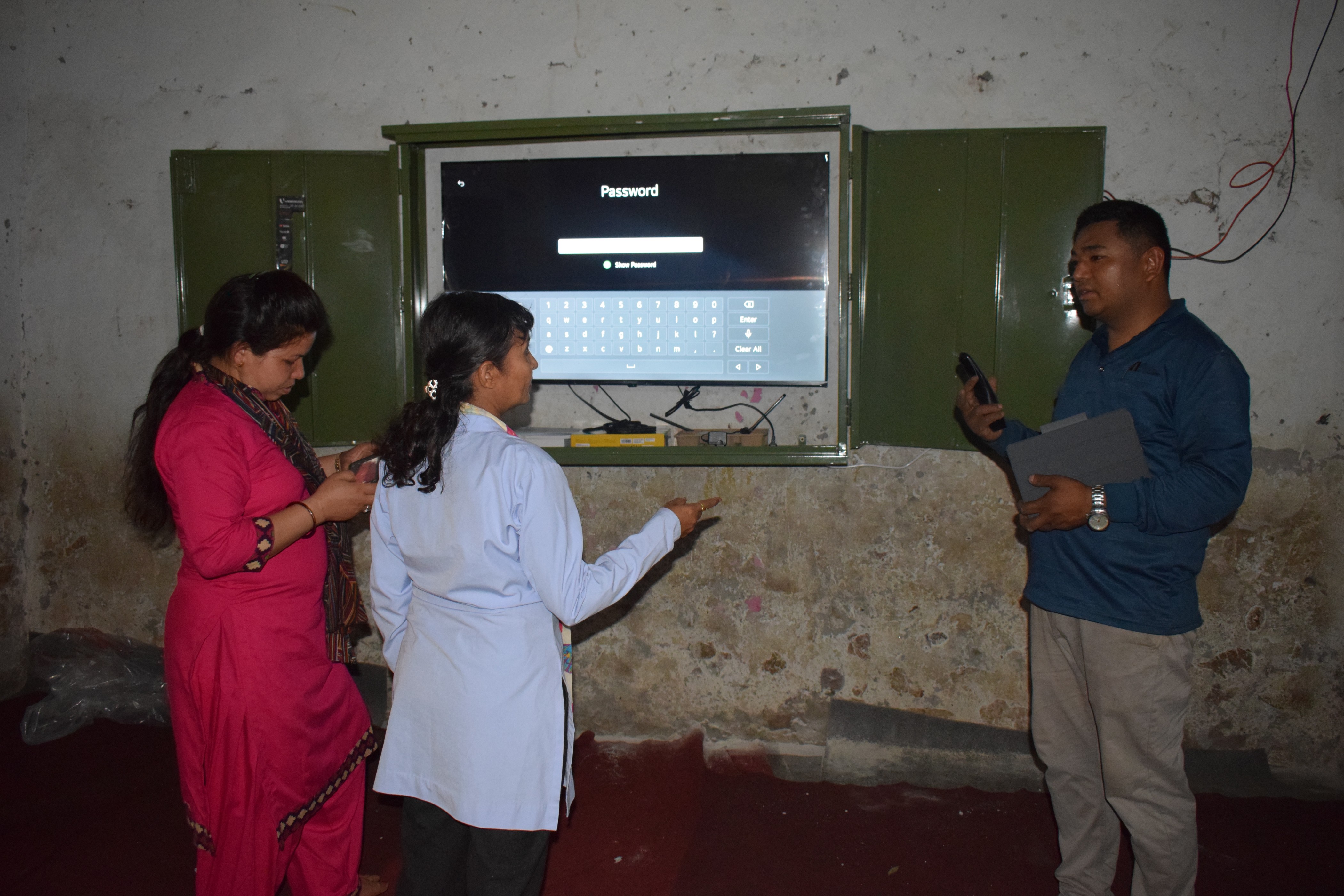 On 20th May, the team went to Shree Aishwarya Nepal Rastriya Primary School for the REIN program. The school is located at Sormarani Rural Municipality And, on 22nd May, the team went to another school named Shree Gyan Jyoti Primary School which is located at Pyuthan Municipality. The school is situated at the border of the Pythan and Rolpa, districts. These both schools are situated at the remote areas of Pyuthan. They have limited access to facilities, even struggling for their basic needs hence NJSI is giving a helping hand to them for their development.
On 20th May, the team went to Shree Aishwarya Nepal Rastriya Primary School for the REIN program. The school is located at Sormarani Rural Municipality And, on 22nd May, the team went to another school named Shree Gyan Jyoti Primary School which is located at Pyuthan Municipality. The school is situated at the border of the Pythan and Rolpa, districts. These both schools are situated at the remote areas of Pyuthan. They have limited access to facilities, even struggling for their basic needs hence NJSI is giving a helping hand to them for their development.

